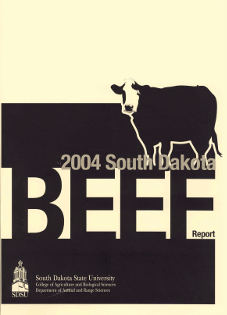Document Type
Report
Report Number
2004-18
Publication Date
2004
Summary
The occurrence of naturalized yellow-flowered alfalfa on private and adjacent public rangeland in northwestern South Dakota presents a dilemma. Its ability to reproduce naturally in native rangeland demonstrates its value for rehabilitating severely depleted rangelands and increasing forage production and quality, soil carbon and soil nitrogen levels. On the other hand, the spread of alfalfa into native rangeland potentially threatens native biological diversity and may result in changes in ecological processes and functions (e.g., alteration of pools and flows of energy and nutrients). A study was initiated on the Grand River National Grassland in 2003 to determine the effects of yellow-flowered alfalfa on species richness and biomass production of native plant communities. In each of two sites, two permanent transects were established. At 2-m intervals along each transect, cover for each species was recorded in 2 x 1 m quadrats. Distinctive plant communities were identified along each permanent transect. In each, three 1.45 x 0.3 m quadrats were clipped for aboveground biomass of alfalfa and other species. Naturalized yellow-flowered alfalfa significantly decreased total species richness, native species richness, and non-alfalfa biomass, but increased introduced species richness and total biomass production when alfalfa cover exceeded 50%. Species composition of major species (frequency ≥ 50%) changed with increased alfalfa cover. The percentage of total biomass from non-alfalfa species declined from 100% to 30% when alfalfa cover increased from 0% to over 50%. Our results clearly suggest that naturalized alfalfa strongly competes with native species in suitable areas of semiarid rangelands.
Number of Pages
7
Format
application/pdf
Language
en
Publisher
South Dakota State University
Rights
Copyright © 2004 South Dakota State University
Recommended Citation
Xu, Lan; Boe, Arvid; Johnson, Patricia; and Kephart, Kevin, "Effects of Naturalized Population of Yellow-flowered Alfalfa on Species Richness and Biomass Production of Native Rangeland" (2004). South Dakota Beef Report, 2004. 19.
https://openprairie.sdstate.edu/sd_beefreport_2004/19

